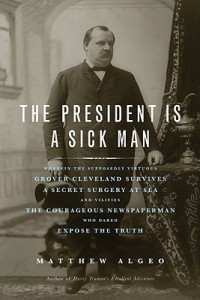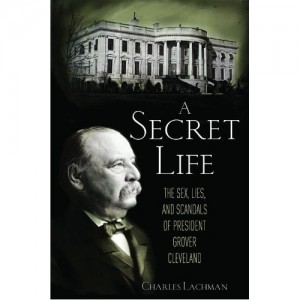We’ve entered a new golden age for Grover Cleveland bashing

 Debunk Word History
Debunk Word History
During the 16th Congress (1819-1821) Felix Walker, a representative from western North Carolina whose district included Buncombe County, carried on with a dull speech in the face of protests by his colleagues. Walker later explained he had felt obligated “to make a speech for Buncombe.” Such a masterful symbol for empty talk could not be ignored by the speakers of the language, and Buncombe, spelled Bunkum in its first recorded appearance in 1828 and later shortened to bunk, became synonymous with claptrap. The response to all this bunk seems to have been delayed, for debunk is not recorded until 1923. […]Â In 1923, William E Woodward, a writer with a reputation for giving the blunt facts about respected US institutions, coined the term debunk in a best-selling novel called Bunk.
There are, oddly enough, two books that were published last calendar year that seek to knee-cap the reputation of Grover Cleveland — to debunk his historic legacy as unscrupulous and honest with unimpeachable integrity. To a Fault. These qualities tend to lead one to over-look his faults and thus peg him at the top 33 percent of all those famed “Presidential Poll” lists I hanker back to every once in a while (for no good reason). He was a man abandoned by his political party at the end of his presidency, and for awfully good reasons — his conservatism was getting more doctrinaire and annoying to the growing populist swelling masses.  But if Cleveland emerges as somewhat … dare I say… Nixonian, what does that leave him?
I’ve leafed through the books, though haven’t read them. From what I can see, arguably Cleveland comes out okay with the book with the long sub-title — the one that calls him “The Supposedly Virtuous President”. The scandal is apparently set in historical stone — not really up for debate. It is a mar — he defamed the writer of a newspaper article which was, over – all highly gracious of him and praiseworthy but set up some embarrassing medical details he sought to cover up. (And did until a decade after his death.)
Still, considering that Cleveland’s one calling card is “Integrity”, it works in the way of “Attack his strengths”.
The other one… well. Part of Grover Cleveland’s legacy comes from having survived and even thrived after a sex scandal and illegitimate son came to light. “Tell the truth”, he said, and thus the public didn’t care. But this came off a price — the defamation of the wife’s character and sending her to an insane asylum. Also an allegation of Rape, which had been sidelined for political expedencies. Very serious offenses, I would say, easily brushed aside in the late nineteenth century when society would just deign them the province of “hysterical women-folk” — today makes Cleveland not the kind of guy you’d cite when charging off the pointlessness of a political sex scandal.
What is behind the new Grover Cleveland attack machine? Connect the dots, follow the money, and get back to me… must be a shadowy group out there working to sour the public on Grover Cleveland… but to what end? I myself am looking forward to seeing other basically forgotten presidents have their hatchet jobs take place. Let’s start with the one I’ve kept up a hagiography of sorts here — Chester Arthur!